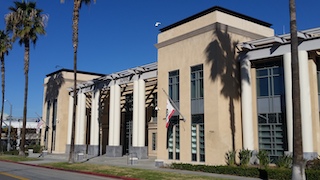Since the new felony murder rule became effective and Senate Bill 1437 provided a method for those convicted under the old felony murder rule to seek resentencing, judges have struggled to decide what circumstances from a prior case fit under the new felony murder rule. As is so often true, legislators simply cannot anticipate how a new law will be stretched and tested.
The Gist of this Article: Admitting to felony murder while entering one’s plea does not necessarily bar one from relief under Senate Bill 1437, as the following summary of a recent Fourth Appellate District Court ruling explains.
The following case, People v. Steven Ray Eynon, exemplifies this struggle, as the Fourth Appellate District Court in Riverside had to decide whether Mr. Eynon’s admission to committing first degree murder, made during his plea, when he was an aider and abettor and not the actual shooter, barred relief under Senate Bill 1437. The trial court found that it did; the Fourth Appellate District Court reversed.
The information alleged in 2012 stated that Mr. Eynon and his co-defendant “did willfully, unlawfully, and with deliberation, premeditation, and malice aforethought murder [the victim].” Penal Code § 187(a). The information further alleged that the murder was committed in the commission or attempted commission of a robbery within the meaning of Penal Code § 190.2(a)(17), that both defendants had previously been convicted of murder (Penal Code § 190.2(a)(2)), that Mr. Eynon personally used a firearm in the commission of the offense (Penal Code §§ 12022.53(b), 1192.7(c)(8)) and that his codefendant personally discharged a firearm resulting in great bodily injury or death of someone other than an accomplice (Penal Code §§ 12022.53(d), 1192.7(c)(8)).
 4th Appellate District Div 2 Riverside
4th Appellate District Div 2 Riverside
In 2013, Mr. Eynon pled guilty to first degree murder as charged and was sentenced to 25 years to life in state prison. Pursuant to a request from the prosecutor and the parties’ plea agreement, Mr. Eynon initialed a statement saying, “I agree that I did the things that are stated in the charges that I am admitting.”
The judge then asked the prosecutor whether it should take a plea to the robbery-murder special circumstance allegation and the prosecutor responded that such a plea was unnecessary because “that would take us beyond the 25 to life.”
In 2019, after 1437 had been enacted, Mr. Eynon filed a petition for resentencing under Penal Code § 1170.95, as he was not the actual killer and he alleged that he did not act with intent to kill and was not a major participant in the underlying felony and did not act with reckless indifference to human life. Therefore, he could no longer be convicted of murder because of changes made to the felony murder rule as enacted under Senate Bill 1437.
The People responded that Mr. Eynon was ineligible because he was held to answer on the special circumstance at the preliminary hearing, which required a finding of being a major participant acting with reckless indifference. The People also argued that he acted with premeditation and intent to kill. They conceded, however, that Mr. Eynon was not the actual killer.
The trial court denied the petition without setting an order to show cause.
Mr. Eynon then appealed this ruling to the Fourth Appellate District in Riverside. The Fourth Appellate District first explained how Senate Bill 1437 narrowed the definitions of first and second degree murder to exclude those who acted without malice and were not the actual killer, as well as by eliminating the natural and probable consequences doctrine.
Turning to the trial court’s ruling, the Fourth Appellate District found the judge erred by denying the petition without issuing an order for the prosecution to show cause why resentencing should not take place. The appellate court rejected the People’s argument because it mischaracterized Mr. Eynon’s factual admissions in his guilty plea. After all, Mr. Eynon admitted only that the murder was a first degree murder because it was committed in the course of a robbery, and that he had committed an act with the then-necessary intent to render him liable for murder under the then-existing law. That was not enough for first degree murder liability after Senate Bill 1437 was passed.
Consequently, Mr. Eynon’s admission that his murder was first-degree murder did not refute his allegation that he was eligible for relief, so the appellate court reversed the order denying his petition and remanded the matter to the trial court with instructions to issue an order to show cause under Penal Code § 1170.95(c).
The citation for the Fourth Appellate District Court ruling discussed above is People v. Steven Ray Eynon (4th App. Dist., 2021) 68 Cal. App. 5th 967, 284 Cal. Rptr. 3d 9.
For more information about SB 1437 relief, please click on the following articles:
 4th Appellate District Div 2 Riverside
4th Appellate District Div 2 Riverside